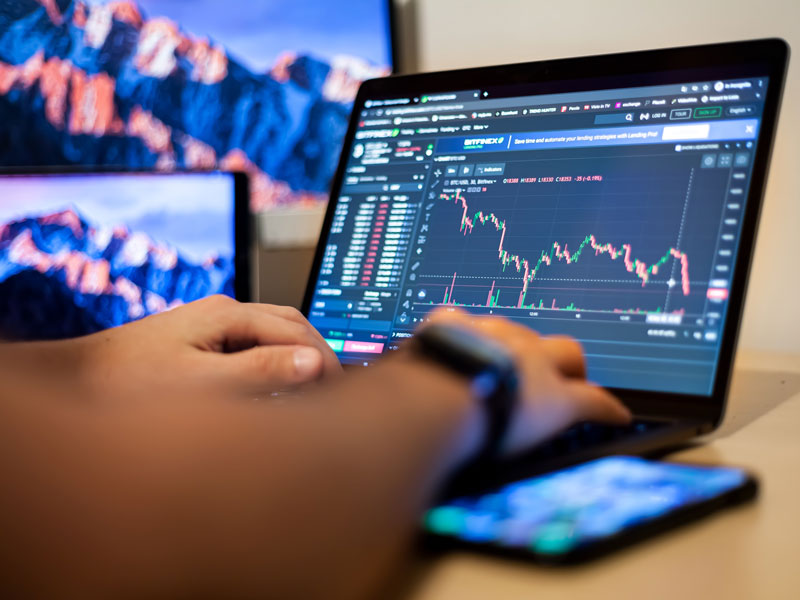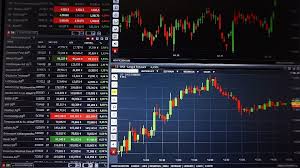
Forex trading, or foreign exchange trading, refers to the global market where currencies are bought and sold. It operates 24 hours a day, five days a week, making it the largest and most liquid financial market in the world. Through platforms like forex trading meaning Argentina Brokers, individuals can participate in this dynamic trading environment.
The Basics of Forex Trading
Understanding the meaning of Forex trading begins with the basics of the currency exchange market. It revolves around the buying and selling of currency pairs, where one currency is exchanged for another. The primary goal of Forex trading is to profit from changes in currency values. Traders speculate whether a currency will appreciate or depreciate against another currency, and based on their analysis, they take positions accordingly.
Currency Pairs
Currencies are always quoted in pairs, typically with a base currency and a quote currency. For example, in the EUR/USD pair, the Euro (EUR) is the base currency, and the US Dollar (USD) is the quote currency. If the exchange rate of EUR/USD increases, it means the Euro is strengthening against the Dollar. Conversely, if it falls, the Dollar is gaining strength against the Euro.
Market Participants
The Forex market is not dominated by a single entity but consists of various participants, including:

- Central Banks: They control monetary policy and influence currency values through interest rates and inflation.
- Financial Institutions: Banks and investment firms participate in Forex trading for hedging and speculative purposes.
- Corporations: Businesses engage in Forex trading to manage foreign currency exposure in their international operations.
- Retail Traders: Individual traders participate using online trading platforms that provide access to the Forex market.
How Forex Trading Works
Forex trading involves a range of activities that can be broken down into simpler terms. The two major components are market analysis and execution of trades.
Market Analysis
Forex traders analyze the market through technical or fundamental analysis. Technical analysis relies on historical price data and charts to predict future currency movements. Traders look for patterns and indicators to make informed decisions. Fundamental analysis, on the other hand, examines economic indicators, news events, and geopolitical factors that can influence currency values.
Execution of Trades
Once an analysis is conducted, traders execute trades through Forex brokers. A broker acts as an intermediary between the trader and the interbank market. Orders can be placed to buy (go long) or sell (go short) a currency pair based on the trader’s expectations of its future price movement. Traders can also implement various strategies such as day trading, swing trading, and scalping, depending on their risk tolerance and trading style.
Leverage and Margin

One of the attractive features of Forex trading is leverage. Leverage allows traders to control a larger position with a smaller amount of capital. For example, with a leverage ratio of 100:1, a trader can control a position of $100,000 with just a $1,000 deposit. While this can amplify profits, it also increases the risk of significant losses, making it crucial for traders to use risk management strategies.
Risks Involved in Forex Trading
Forex trading carries inherent risks. The volatility in currency prices can lead to rapid changes, and unexpected news events can trigger significant market movements. Traders must be prepared for possible losses and should never invest money they cannot afford to lose. Proper risk management techniques, such as setting stop-loss orders and diversifying trades, are essential for mitigating risks.
Tools for Forex Trading
To succeed in Forex trading, traders use a variety of tools and resources. These include:
- Trading Platforms: Software that allows traders to analyze charts and execute trades.
- Economic Calendars: Tools that provide information on economic events and indicators that may influence currency movements.
- Technical Indicators: Tools such as Moving Averages, Relative Strength Index (RSI), and Fibonacci retracement that assist in market analysis.
Emotional Discipline in Forex Trading
Success in Forex trading is not solely dependent on analysis and strategy; emotional discipline plays a crucial role. Traders often face psychological challenges, such as fear and greed, which can lead to impulsive decisions. Developing a trading plan, sticking to it, and maintaining emotional control in the face of market fluctuations are essential for long-term success.
Conclusion
Forex trading represents a complex and exciting financial market with opportunities for traders around the globe. Understanding the meaning of Forex trading includes grasping the essential concepts, market dynamics, and the necessary risk management involved. Whether you are a beginner in the field or an experienced trader, continuous learning and practice are vital components for navigating this lucrative market successfully.
